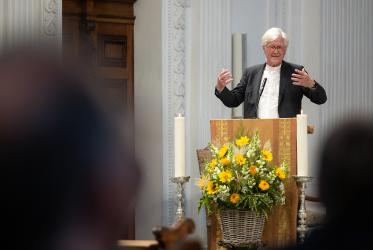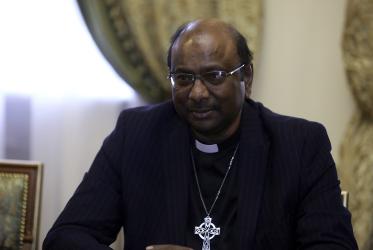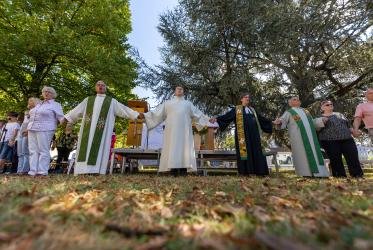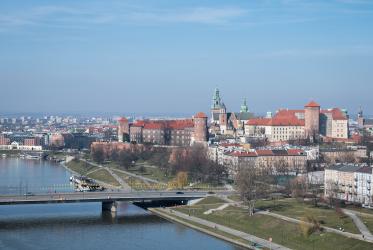Displaying 1 - 20 of 51
21 February 2024
WCC moderator calls for a “reformation of hope” based on love
10 October 2023
In Armenia, WCC general secretary speaks for justice
22 September 2023
Ecumenical delegation visits Armenia
19 September 2023
From hostility to hospitality: Closing prayers at Karlsruhe
09 September 2022
Ukraine: Responding to humanitarian need
08 September 2022
Bible studies bring ways to learn how Christ’s love moves us
06 September 2022


















